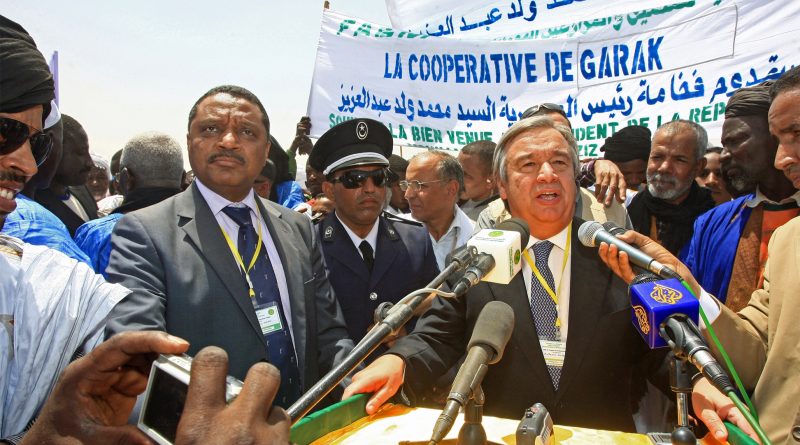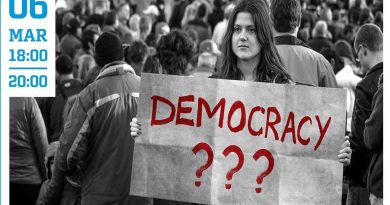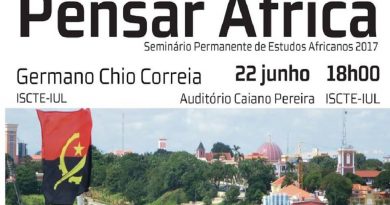António Guterres and his Democratic Caravels
The world is witnessing a period of conflicts that is not limited only to wars. Multiple conflicts because of economic, ethnic, or religious differences are observed. Those conflicts, in turn, are interwoven. Facing this conflict diversity calls for respected agencies and effective leaders that can protect and promote the global pact that is the Universal Declaration of Human Rights.
One of the problems that defy the legitimacy of the United Nations is that the responsible entity appointed to ensure global peace and security depends on the permanent members of the Security Council, including China, United States, France, United Kingdom and Russia, whose authority is increasingly challenged.
A new selection process
Under this critical scenario, a new selection process was implemented for the appointment of the Secretary General of the United Nations, whose purpose is to ensure a transparent selection process and promote the nomination of candidates ensuring “equal opportunities for women and men in the access to high-ranking decision-making positions,” as well to consider the choice according to regional diversity – nowadays preferably from Eastern Europe.
For this selection process, twelve candidates – out of which six were women – were presented. Among those six women we have two Latin-American candidates: Susana Malcorra and Christiana Figueres. Each candidate was nominated by the Permanent Representative of a Member State of the United Nations to the General Assembly and to the President of the Security Council, through a note accompanied by an annex alongside a summary of the candidate’s biography.
The nominees submitted a written essay summarizing their vision for the role they were to develop in the period 2017-2021. Afterwards, six informal meetings took place where they were evaluated. These informal meetings acted as a filter for those who were more remarkable. Once the candidates were proposed to the Security Council, it recommended the draft resolution A/71/L4 to the General Assembly, in which they finally approved by acclamation the official appointment of António Guterres as Secretary General of the United Nations for a period of four years.
A new momentum for gender equality
It is worth noting the urging importance of gender equality in the applications for the selection of the new Secretary General and the use of participatory mechanisms that suggest more transparent and participatory rules. The selection process for this candidacy – despite the elected candidate not being a woman, nor belonging to Eastern Europe – brings a very encouraging message, as now it is stated that special conditions and aptitudes are privileged in such an important position. This new perspective will allow the reinforcement of the United Nations as an entity whose authorities assume public commitments that can be evaluated.
The choice of António Guterres
An equally important element of this event is the appointment of António Guterres, who personifies a Portuguese-style leadership that is rooted in a transcontinental past and projected onto global humanism. Portugal has a long tradition of using diplomacy to resolve disputes and conflicts at a global scale. Among the first is the famous Treaty of Tordesillas (1494) which provided the European powers with the first frame for colonial coexistence. More recently – now deprived of its imperial status and military power – Portugal assumes the role of facilitator and articulator between powers for a unified criteria. This can be exemplified with complex agreements such as the Treaty of Lisbon (2007), which grants legal personality to the European Union.
As a national political leader, António Guterres has honourably held the role of Prime Minister and the role of international leader as the United Nations High Commissioner for Refugees (UNHCR). This latter post was held during the largest migratory and humanitarian crisis after World War II, whereby he managed to materialize humanistic principles without losing the notion of the importance of politics. These qualities, along with the ability to generate consensus, have led him to be mentioned in 2015 as strong candidate for the Presidency of Portugal. Those qualities, along with a great campaign on behalf of Portuguese diplomacy with its allies, allowed him to be elected Secretary General of the United Nations.
An organization that contributes to international coexistence through the rule of human and social rights given by the United Nations Charter, is certainly legitimised through the appointment of its highest executive authority through a method that closely resembles the core principles of democracy. The appointment of a Portuguese perhaps announces a time when new caravels bring us the globalization of democratic values.
Mauritanian refugees return from Senegal in 2012, Photo by Magharebia / CC BY-SA 2.0
![]() This work is licensed under a Creative Commons Attribution-NonCommercial-ShareAlike 4.0 International License.
This work is licensed under a Creative Commons Attribution-NonCommercial-ShareAlike 4.0 International License.




